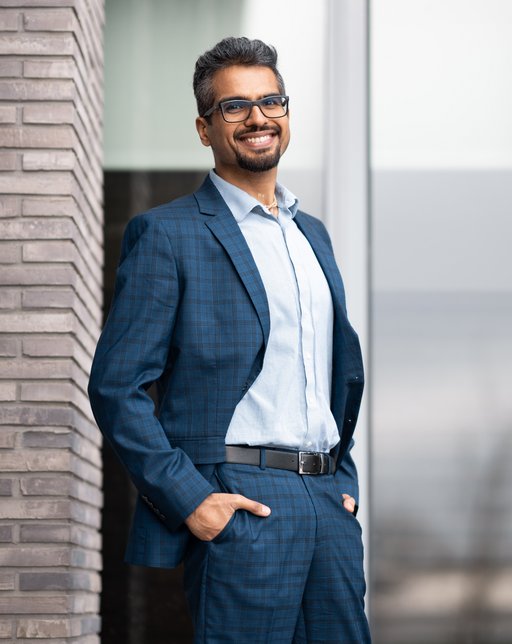
by Ankita Atrey
17 March 2025 · 5 min read
Akhil Arora joined Aarhus University (AU) in October 2024 as a Tenure-Track Assistant Professor in the Data-Intensive Systems group. At AU, he has established the CLAN for AI Research on Language and Networks (or “CLAN” for short). Beyond that, he’s a fellow of the Copenhagen Center for Social Data Science (SODAS), an affiliate of the Pioneer Centre for AI (P1), and a formal collaborator of the Wikimedia Foundation, the non-profit organization that manages Wikipedia and related projects.
In 2024, Akhil graduated with a PhD in Computer Science from EPFL in Switzerland, where he was advised by Prof. Robert West. In days of yore, he spent close to five years in the industry working with the research labs of Xerox and American Express as a Research Scientist. Even before that, he graduated from the Computer Science department of IIT Kanpur, India. His work on influence maximization has been recognized as the 8th most influential paper of SIGMOD 2017 by Paper Digest and received the 2018 ACM SIGMOD Most Reproducible Paper Award. He is a recipient of the prestigious EDIC Doctoral Fellowship, an alumnus of the coveted Heidelberg Laureate Forum, and a DAAD AINet fellow on human-centered AI.
Can you tell us about your current research?
Sure. The overarching goal of my lab is to devise the next generation of information systems that understand our needs and “take us by the hand” in seeking online knowledge. At CLAN, our research involves devising models and algorithms blending techniques from natural language processing, artificial intelligence, graph machine learning, computational social science, and data and network science, with an emphasis on improving human knowledge-seeking, bridging knowledge gaps, and promoting knowledge equity on the Web. Beyond developing models, we create interactive tools, some used by millions of Wikipedia readers and editors. Currently, we are focusing on enhancing LLM-based reasoning frameworks, building knowledge-seeking agents, and devising generative LLMs to support knowledge creation and maintenance.
How do you think your research will impact industries, where sensitive data is a concern?
That’s a great question. Most of my research relies on real human behavior data, and I take utmost care to appropriately handle sensitive information. For example, in the past I have devised privacy-preserving models of human knowledge-seeking behavior that can simulate human-like browsing behavior on Wikipedia while protecting users’ privacy.
Next, a major challenge in today’s world that impacts almost every sector is designing AI systems that don’t provide false or misleading information. For instance, in healthcare, AI-generated misinformation can be risky if acted upon. My work focuses on improving AI reliability by integrating question-answering systems with reading recommendations, allowing users to verify information through relevant sources.
You're designing the department's first NLP course. Could you share more about its focus and impact?
With pleasure! Natural language processing (NLP) is ubiquitous in today’s world. NLP techniques serve as a foundation for most modern technologies, such as language translators, search engines, and virtual assistants powering our smart home devices, code editors, and more. This course will provide students with a detailed knowledge of both classical and modern NLP methods, ranging from bag-of-words and n-gram models to word embeddings, recurrent neural networks (RNNs), transformers, and large language models (LLMs). Students will also be exposed to recent developments in LLMs, such as alignment, retrieval-augmented generation, autonomous AI agents, multimodality, etc., and important concepts such as sensitivity, robustness, interpretability, bias, and fairness of state-of-the-art NLP approaches. Most importantly, this course will enable the students to get a job, as they will acquire one of the most sought-after skills in the job market today: using LLMs to solve real-world problems.
What do you like to do outside of work?
Outside of work, I’m passionate about hiking and really miss it here in Denmark. I’m hoping to visit Norway for some real trails! I love music, especially classical rock. I also enjoy weightlifting, though I’ve had to take a break due to injuries. On weekends, I love unwinding with my wife and enjoy just relaxing.
Why did you choose to come to Aarhus?
I felt right at home during the interview, thanks to a great team, particularly Davide and Chris, as well as the strong support from upper management, including Kaj, Ira, Niklas, Kasper, and Ioannis. It is truly one of the top places in Scandinavia, and the best in Denmark.